May 2018 national eResearch newsletter
Welcome to the May AeRO eResearch Newsletter
Message from AeRO CEO
eResearch and Community Engagement.
I’m pleased to say we are putting an emphasis on broader engagement at eResearch events this year (see http://www.c3dis.com/broader-engagement-and-students). The goals are to raise awareness of the impact created by eResearch investment, to promote a diverse and inclusive workforce (http://www.c3dis.com/accessibility-and-inclusion), and to help students see themselves in eResearch careers.
Some examples at C3DIS include an event for the general public (http://www.c3dis.com/data-intensive-science) and activities for secondary teachers and students. We hope to build on this for eResearch Australasia and welcome your contribution. Lastly, don’t forget to tell us about any similar activities so we can promote them!
Sam Moskwa, AeRO CEO.
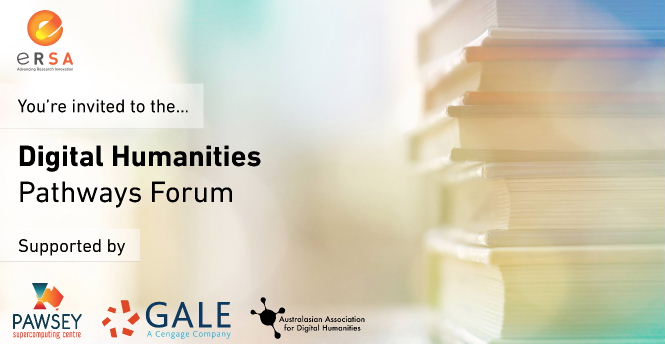 |
Digital Humanities Pathways Returns for 2018 in Perth 18-May
2018 brings a new look for the Digital Humanities Pathways Forum, starting in Perth at the Pawsey Supercomputing Centre on Friday, 18 May. Bringing together humanities, arts and social science (HASS) researchers and the cultural collecting sector (galleries, libraries, archives and museums) together to speak about the links between research, data, and national infrastructure, the forum will also showcase projects illustrating current contemporary data, technology-intensive research and collection practices. For more info, visit the Eventbrite page https://www.eventbrite.com.au/e/perth-digital-humanities-pathways-forum-your-pathway-to-the-latest-innovative-eresearch-tools-tickets-45181208210. |
 |
Research Software Engineers – Meetup in Perth 18-May
You are invited to an event to discuss the setup of an Australian Chapter of the Research Software Engineers (RSE) Association. Research Software Engineers (RSEs) are people who write and maintain research software. A growing number of people in academia combine expertise in software development with an intricate understanding of research. Although this combination of skills is extremely valuable, these people lack a formal place in the academic system. This means there is no easy way to recognise their contribution, to reward them, or to represent their views. Without a name, it is difficult for people to rally around a cause, so we created the term Research Software Engineer. We are now working to raise awareness of the role and bring the community together. A meeting to move this forward will be held at 3pm at the Curtin Institute for Computation in Perth on Friday, 18-May. For more information and to enrol, see https://www.eventbrite.com.au/e/research-software-engineers-au-meetup-in-perth-tickets-45844919388. |
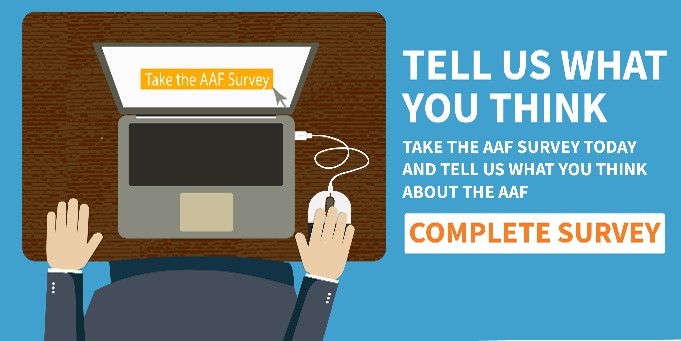 |
Tell Us What You Think! Complete the 2018 AAF Survey by 25-May
The AAF is seeking your help to gather information on the importance of activities undertaken by us, in order to assist with future planning. Please help us in making the AAF better for our subscribers, by completing the survey. Your responses and comments will be kept confidential. To complete the 2018 AAF Subscriber Survey, go to https://aaf.edu.au/news/survey.html. |
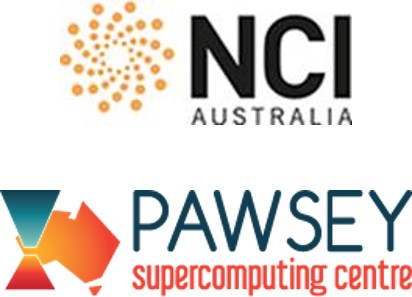 |
Introduction to High Performance Computing Workshop – C3DIS 28-May
This workshop, hosted by Dr Daniel Grimwood of the Pawsey Supercomputing Centre, and Dr Roger Edberg of NCI, is an essential opportunity for C3DIS attendees that are interested in learning how to utilise high-performance computing in their research. The full-day course on 28-May includes how to access the facilities, data collections, and a crash-course in both cloud computing and supercomputing. We will also introduce using containers in a cloud and HPC environment. With both peak facilities having recently received substantial funding for new infrastructure, there has never been a better time to learn about HPC. |
 |
Workshop on Australia-US Collaboration in Earth and Environmental Science Informatics, 28 May 2018
Research problems in Earth and Environmental Science involves aggregating data from multiple sources and collaborations across multiple agencies, including government, NCRIS facilities, CRCs, industry, etc. The US Earth Science Information Partners (ESIP) has addressed this over the last 20 years through forming a collaborative partnership with NASA, NOAA, USGS and others. CSIRO, NCI, ALA, TERN, AuScope, IMOS, ANDS/NeCTAR/RDS are organising this workshop which aims to facilitate the development of a similar community of practice in Australia, and transfer some of the knowhow of ESIP into the Australian context. See Program at http://www.c3dis.com/1725 |
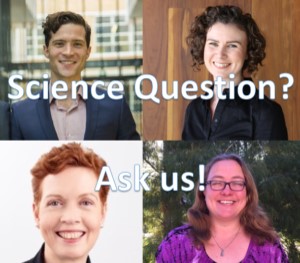 |
Family-Friendly DataScience Event – Data-intensive Science – 30-May
Join with four notable scientists, on the topic ‘Data Intensive Science: from Astronomy to Zoology’, for a fun and thought-provoking family evening, exploring how science has changed. The panel:
Wed 30 May 2018, 7:30pm – 9:00pm, Level 1, Melbourne Convention and Exhibition Centre. Cost: $5 per person. |
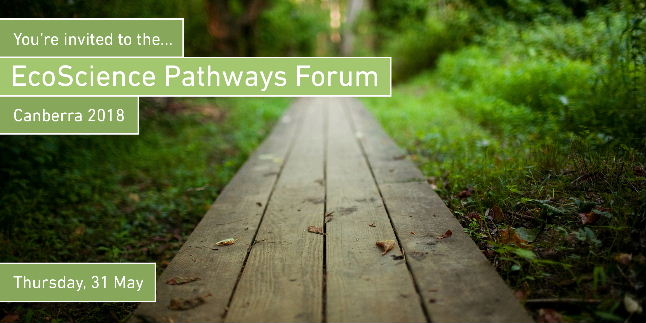 |
Work in EcoScience? Join our Canberra Pathways Forum on Friday, 31-May
Canberra will host the first EcoScience Pathways Forum, beginning a national series of events as part of the EcoScience Data-Enhanced Virtual Laboratory (DEVL) Research Data Cloud (RDC) Project. Connecting EcoScience academics and industry professionals, this is an opportunity to learn more about existing digital infrastructure, contemporary data and management practices for environmental science. This is an opportunity for the EcoScience community to have its say on better integration of digital technologies in courses and training programs, and how it can collaborate to advance research practices into management decisions. For more info, visit https://www.eventbrite.com.au/e/canberra-ecoscience-pathways-forum-tickets-43293584276. |
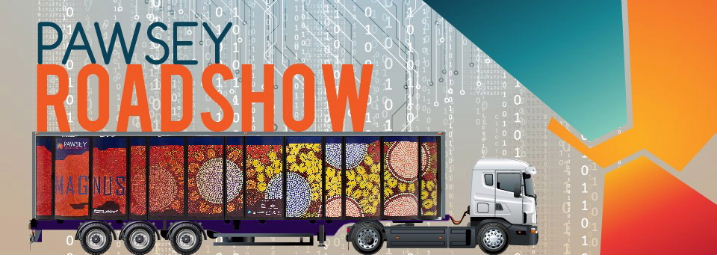 |
Pawsey Roadshow 31-May
The Pawsey Roadshow is a free event showcasing services and resources that Pawsey Supercomputing Centre provides to researchers across Australia. Researchers will present their experiences as high-performance computing (HPC) users and show how their projects have been impacted by Pawsey’s services and expertise. Staff from Pawsey will also be presenting and answering questions. See https://www.pawsey.org.au/event/pawsey-roadshow-melbourne/. Register if you are a researcher who:
|
 |
Pawsey User Forum 31-May
The Pawsey Supercomputing Centre is pleased to invite you to the upcoming User Forum event in Victoria to discuss your experiences using Pawsey services. We want to hear from you to find out what we are doing well and where we can improve. Your feedback can cover all aspects of interactions with the Pawsey Supercomputing Centre. This may include the full project lifecycle of application, allocation management, usage, and reporting for the various supercomputing, data, cloud and visualisation systems that Pawsey operates. Even though this is a free event, registration is required. To register please select ‘Pre or Post Conference Workshops Only’ on C3DIS registration portal. The Pawsey User Forum will be found at the end of the list. See https://www.pawsey.org.au/event/pawsey-user-forum-in-melbourne-2/. |
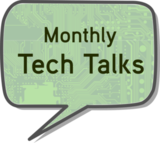 |
Monthly Tech Talk on DEVLs – 1-Jun
The next monthly Tech Talk (virtually and at locations around Australia) will be held at 15:00-16:00 AEST on Friday, 1-Jun-18. The topic will be: Developing Australia’s Data Enhanced Virtual Laboratories (DEVLs). Eight DEVLs have been invited to introduce their software platforms that support Virtual Labs over the next two TechTalk events. The first event is at 15:00-16:00 AEST on Friday, 1-June-18, virtually and at locations around Australia. More information and how to enrol can be seen at https://www.meetup.com/monthlytechtalk/. |
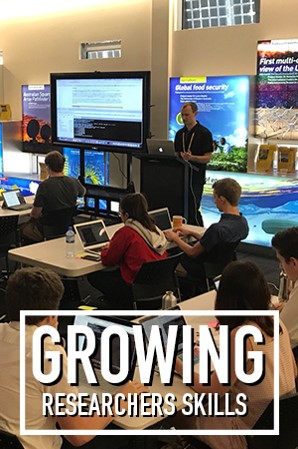 |
Pawsey QLD Training 6-7 June
Pawsey Supercomputing Centre is running training for researchers in Brisbane, providing a great opportunity to freshen up supercomputing skills, explore more ways to store data, and visualise results in more engaging ways. So register now before all the seats are gone! Introduction to Pawsey: 9:00 – 9:30am Wednesday 6 June |
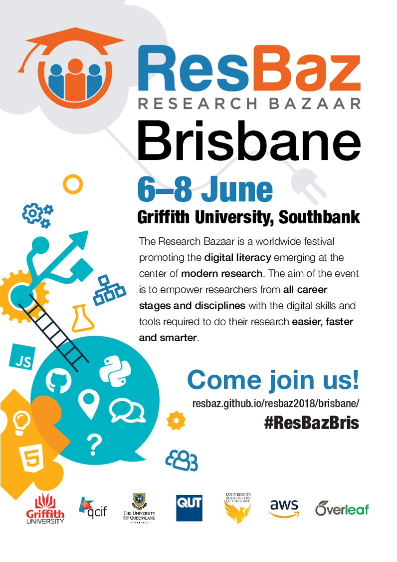 |
Research Bazaar Brisbane 6-8 June
Research Bazaar is a three day event, where researchers of all skill levels and disciplines come together to build their research with next generation digital research tools and methods. Throughout the event, there will be workshops to accelerate research using technology, speakers to inspire, local groups to engage and support, and stalls to highlight resources available nationally and locally. Workshops will include introduction to R, Python, HPC, Library Carpentry and Machine Learning, as well as classes on Humanities, Biology, Ecology and more! Date: 6-8th June 2018 More information and tickets: https://resbaz.github.io/resbaz2018/brisbane/. |
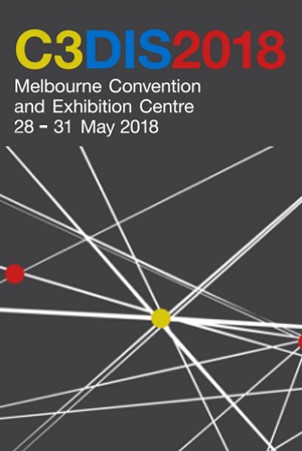 |
Pawsey at C3DIS
Team Pawsey will be at the Collaborative Conference on Computational and Data Intensive Science (C3DIS) this year in Melbourne from 28 – 31 May. Pawsey will host a joint training session with NCI and a workshop on building applications for the scientific community (http://www.c3dis.com/2060). Additionally, Pawsey staff are taking the opportunity that C3DIS presents to run a special Roadshow (https://www.pawsey.org.au/event/pawsey-roadshow-melbourne/) and a User Forum (https://www.pawsey.org.au/event/pawsey-user-forum-in-melbourne-2/). Although these are free events, registration is required. To register please select ‘Pre or Post Conference Workshops Only’ on C3DIS registration portal https://cdesign.eventsair.com/c3dis-2018/registration/Site/Register. Roadshow and User Forum will be found at the end of the list. |
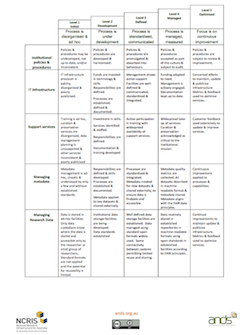 |
Improve Your Organisation’s Capacity to Support Research Data Management
How can your organisation improve its capacity to support research data management? ANDS/Nectar/RDS has recently made improvements to its Capability Maturity Model. This now also incorporates the FAIR (Findable, Accessible, Interoperable, Reusable) principles. The Capability Maturity Model, contained within the Creating a Data Management Framework Guide, sets out five levels of maturity which organisations may achieve in managing their research data. Organisations can use it to assess their current level of attainment and identify areas or gaps where they may wish to concentrate in the future. The updated guide is now available at: http://www.ands.org.au/guides/creating-a-data-management-framework. |
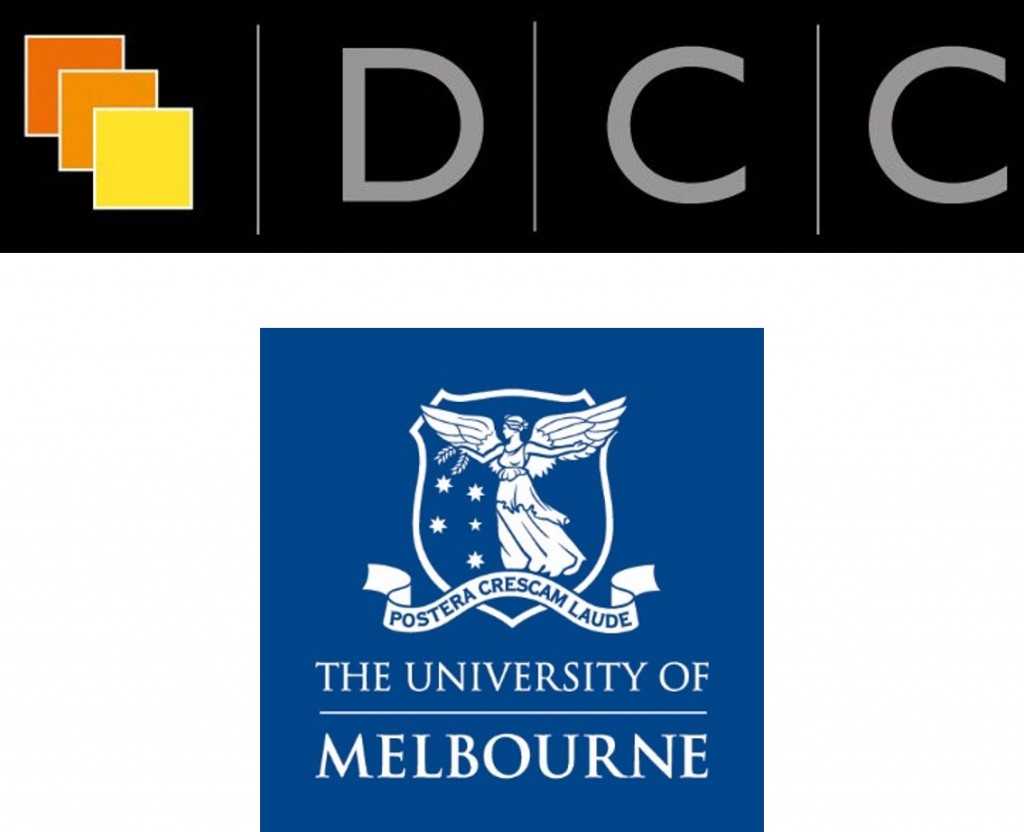 |
Call for Submissions – IDCC February 2019 Melbourne
The 14th International Digital Curation Conference will take place on 4-7 February 2019 in Melbourne. The theme is ‘Collaborations and Partnerships: addressing the big digital challenges together’. This is the largest international conference in the area of data management and curation and will take place for the first time in the Southern Hemisphere, organised in partnership with the University of Melbourne. For more information and details of how to submit, see http://www.dcc.ac.uk/events/idcc19/submissions. Paper submissions and lightning talks close on 18th June 2018. |
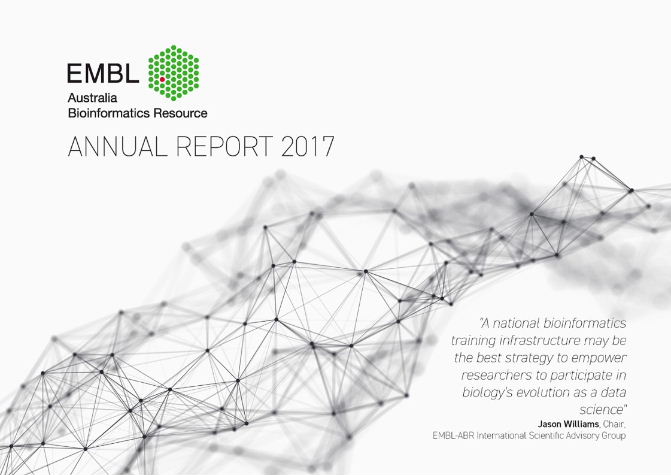 |
EMBL-ABR Annual Report Released
In his introduction to the 2017 EMBL-ABR Annual Report just published, Director Assoc Prof Andrew Lonie refers to a July 2012 paper on the value of backbone organisations (like EMBL) in delivering collective impact. Andrew answers their questions in relation to EMBL-ABR, but they relate to many eResearch projects. For example, would this work be carried out by individual organisations/researchers in the same time frame? This month EMBL-ABR also welcomed a 13th Node: the University of Sydney, based at the Sydney Informatics Hub (SIH) with Dr Rosemarie Sadsad as the Head of Node. Link to Annual Report: https://www.embl-abr.org.au/2017-ar/. |
 |
Pawsey Uptake Projects
Pawsey has opened its call for applications for collaborative projects with its supercomputing team. These projects will focus on improving software and workflows within the Centre over a project course of three months, from June to August 2018. The focus of these uptake projects is to improve the performance of applications that use or potentially could make use of the Pawsey Supercomputing Centre compute resources. More information can be found here https://www.pawsey.org.au/2018/05/2018-pawsey-uptake-projects/. |
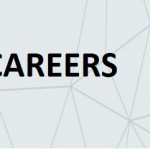 |
AeRO Jobs Board
Don’t forget that AeRO is helping spread the word on the latest eResearch job opportunities. We post jobs immediately to https://twitter.com/AeRO_eResearch and also update on our website at http://aero.edu.au/eresearch-careers/. This is a free service for the eResearch community – to advertise a position, simply email loretta@aero.edu.au. Current vacancies include: an eResearch Director, a Solutions Analyst, an ORCiD Regional Membership Specialist, a Head of Research Computing, and a Machine Learning Data Engineer. |
Contributions
This newsletter is based on contributions provided by members of the eResearch community, and draws on news articles and newsletters published across the sector. The Newsletter is published around the 16th of each month.
Please send any contributions (max. 100 words, plus a link and image) or pointers to any other relevant articles or newsletters to editor@aero.edu.au
Archives of these Newsletters are held at http://aero.edu.au/newsletters/.
Click HERE to add yourself to the eResearch Mailing List.
Thanks,
—AeRO Newsletter Editor

